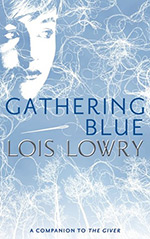
![]() ScoLgo
ScoLgo
4/2/2015
![]()
Eh. I don't think I'm the target audience here. It's not that the book is bad - it just does not live up to its potential. Some of that can probably be attributed to brevity; at just over 200 pages, as I neared the ending, I was wishing for more length to lend additional detail. Especially when it came to the magical elements - which brings up my main gripe: What is up with the unexplained magic system? Why do Kira, Thomas and Jo have 'special talents' that others do not? How does Jonas in the first book (The Giver) retain memories while the rest of his community does not? Why does The Giver no longer retain individual memories after he transmits them to Jonas? In this book, how and why does the piece of fabric Kira wove when she was little sometimes glow with reassurance - or with warning? Why does the small piece of wood Thomas carved when he was little do the same for him? Why do Kira's fingers have the ability to weave 'as though they have a mind of their own'? It's all very mysterious - and not in a good way. Incorporating these magical elements with no regard to how and why gives the impression of a lazy writer who can't be bothered with applying a bit of critical thinking when fabricating their story. It all makes little sense and Lowry makes no real attempt at explanation; "It just is". I find that type of thing irritating.
But yeah, I get that it's a thought-experiment. And that it is targeted toward a younger audience that will (hopefully) grow into stories that feature consistency and more in-depth world-building. Stories set in worlds where things happen for a reason - not just because the author decides that this is how it is and let's not look too closely at the details.
With all this said, these first couple of installments in The Giver Quarter work pretty well as parables and as warnings to young people that they should question authority, stand up for themselves, do right by their friends, and listen & learn before speaking out when the social ground they stand on is uncertain. But as fiction for adults that already have some clue about these things, I feel that these books fall rather flat.